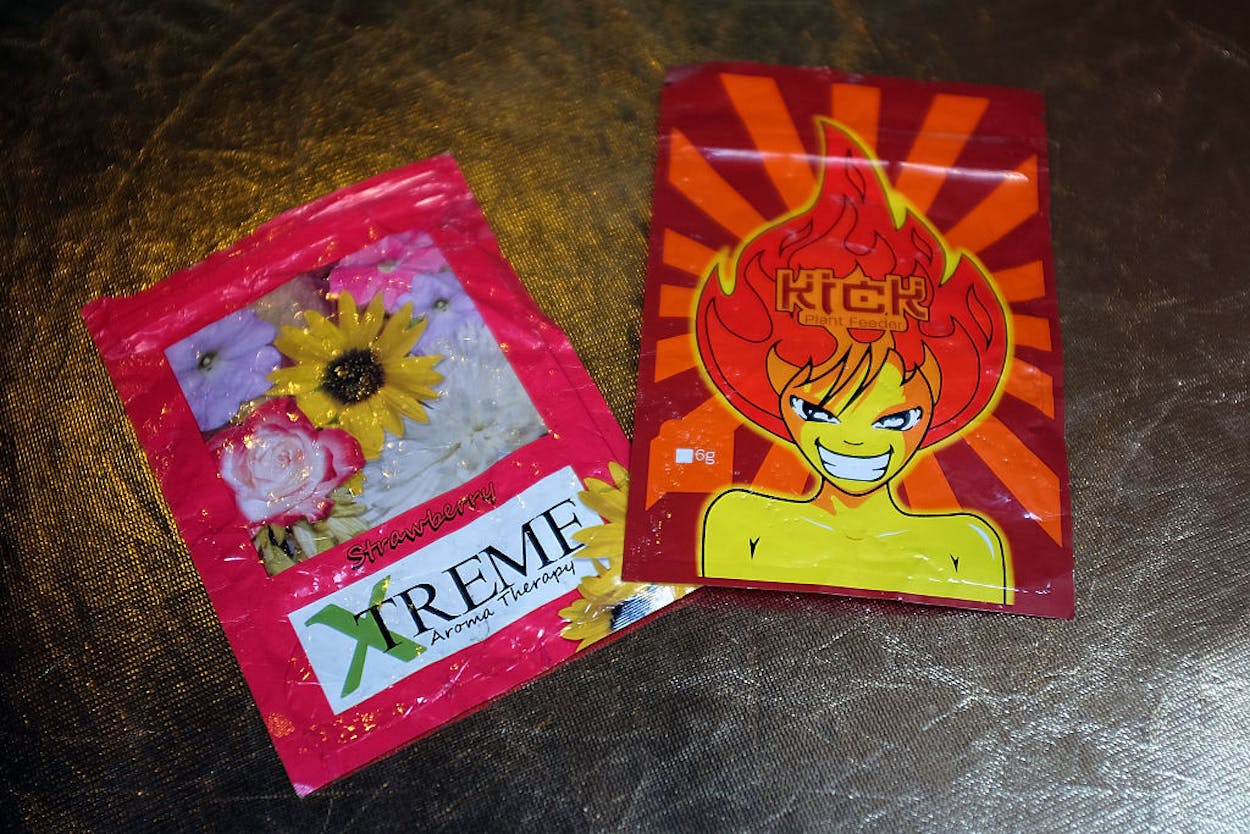The City of Houston announced in a press conference on Wednesday that it seized a massive amount of K2, a dangerous synthetic drug that has been ravaging Houston as well as just about every other major city in the nation for the past few years. The bust, dubbed “Operation Mulholland,” dragged in over 600 pounds of loot, an estimated worth of $2.5 million on the street. According to the city, it’s the largest K2 bust in Houston to date.
.@houstonpolice Chief @ArtAcevedo, D.A. Ogg announce major Kush bust. The largest bust to date: more than 600lbs of poison synthetic #kush pic.twitter.com/B8Fm5iWHHf
— Sylvester Turner (@SylvesterTurner) April 20, 2017
$2.5M street value, over 600lbs of synthetic cannabinoid "kush" was ceased by @houstonpolice Narcotics Div. led by Lt. Todd pic.twitter.com/64nH63HOt5
— Sylvester Turner (@SylvesterTurner) April 20, 2017
K2 has become an extremely troublesome substance everywhere from New York to Los Angeles, and particularly in Texas cities. Austin has seen dozens of K2 overdose outbreaks on an almost weekly basis this spring, forcing the mayor to create a multiagency team of law enforcement officers and health professionals to combat the surge earlier in April, according to the Austin American-Statesman. And in San Antonio, federal and local law enforcement busted the largest K2 distribution ring in the state. According to the San Antonio Express-News, Muhammad Jaffar Ali was sentenced to sixteen years in federal prison two weeks ago for distributing more than 300 tons of the substance throughout the Alamo City and to Austin, Houston, Dallas, Laredo, and even as far away as Oklahoma and Kansas.
As the Houston Press reported last summer, H-town is a major hub for the synthetic drug, which also goes by “spice,” “kush,” and “synthetic marijuana.” Just as in every other drug epidemic, K2 abusers come from all walks of life, but K2 abuse is most noticeable among homeless populations because they tend to use out in the open. Several major K2 overdose outbreaks last summer among homeless encampments in the heart of Houston prompted Mayor Sylvester Turner to start aggressively targeting distributors and clear out areas where homeless people tend to congregate, which become easy marks for dealers. That plan has sort of paid off, as a handful of busts like Operation Mulholland have yielded hundreds of pounds of K2. But Houston’s K2 problem remains at an epidemic status.
K2 is often wrongfully described as “synthetic marijuana,” and though Houston’s latest K2 bust was announced on the unofficial marijuana holiday, April 20, the drug is nothing at all like weed. It’s a chemical substance haphazardly sprayed on crushed tea leaves, then rolled into cigarillos and smoked. The batches of K2 are not evenly sprayed, so symptoms vary, but it can have a similar effect as PCP, sometimes causing users to blackout for long periods, wander into traffic, pass out, or become extremely violent. According to Turner, some of the K2 recovered in Operation Mulholland even tested positive for paint thinner. While deaths linked to K2 are generally underreported, the drug can absolutely be deadly.
K2 is often sold in colorful, cartoonish packages labeled as “incense” and “not for human consumption.” The state has recently been cracking down on sellers peddling the substance from head shops and gas stations, frequently shutting down those operations using Texas’s Deceptive Trade Practices Act. Since K2 is a synthetic chemical designed in labs, it’s difficult to effectively criminalize, because producers can easily tweak the chemical components to make it a substance that is not technically banned by law. In the last few years the state has added a lot more K2 chemical compounds to the list of banned substances, but there are literally thousands of possible combinations. That also makes K2 extremely difficult to test for in crime labs, which in many of Texas’s biggest cities are already overburdened or comically incompetent anyway (just look at Houston and Austin).
Operation Mulholland is an encouraging sign, and it certainly serves as a warning to K2 distributors in Houston. But with summer in Texas just heating up, we’ll likely see plenty more massive K2 overdose outbreaks in Houston, Austin, and beyond.






